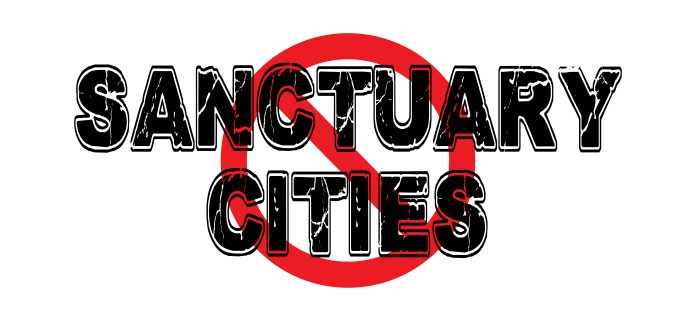
President Trump has ordered ICE to target Democratic-led sanctuary cities for deportations while pausing enforcement in certain industries, signaling a politically charged approach to immigration enforcement that has sparked both praise and controversy.
Key Takeaways
- Trump has directed ICE to focus deportation efforts on major Democratic-led cities while pausing enforcement in agricultural, restaurant, and hotel sectors
- Republican-led states like Florida, Texas, and Virginia are cooperating with federal deportation efforts, while blue states view these actions as partisan
- The administration is deploying military resources to assist ICE operations, including planned Marine deployments to Los Angeles
- Agriculture Secretary Brooke Rollins has successfully lobbied for protecting farmworkers from deportation due to industry concerns
- Critics argue this targeted approach to immigration enforcement represents a politically motivated policy implementation
Trump’s Strategic Shift in Immigration Enforcement
President Trump’s administration has implemented a significant policy shift in immigration enforcement, strategically targeting Democratic-led sanctuary cities while providing exemptions for certain industries. This approach represents a calibrated response to competing priorities within the administration’s mass deportation initiative. After facing resistance from agricultural and hospitality sectors concerned about workforce shortages, Trump has instructed ICE to pause worksite enforcement in these critical economic sectors while intensifying operations in major urban areas identified as Democratic strongholds.
The president has been explicit about focusing deportation efforts on cities like Los Angeles, Chicago, and New York. In an internal memo, ICE officials were directed to “please hold on all worksite enforcement investigations/operations on agriculture (including aquaculture and meatpacking plants), restaurants, and operating hotels,” Tatum King, New York Magazine.
🔥 PRESIDENTIAL DUTY IN ACTION:
How President Trump Can Legally Deploy U.S. Marines to Defend California Against a Foreign-Fueled Invasion
🇺🇸 By: AlphaWarrior | June 8, 2025
🧨 CRISIS IN CALIFORNIALos Angeles is descending into chaos. Violent foreign actors, including… pic.twitter.com/AChT9fvkgr
— ALPHAWARRIOR (@xAlphaWarriorx) June 9, 2025
Military Resources Deployed to Support ICE Operations
The administration’s immigration enforcement strategy has expanded to include significant military support for ICE operations. Plans to federalize National Guard units and deploy Marines to Los Angeles have raised concerns among critics who characterize these moves as an armed takeover. These military resources provide ICE with force multipliers, including advanced equipment and specialized training that significantly enhance deportation capabilities. The deployment strategy appears to favor operations in Democratic-led jurisdictions, reinforcing the perception of politically motivated enforcement.
“Why aren’t you at Home Depot? Why aren’t you at 7-Eleven?” Stephen Miller, New York Magazine
Republican leaders have been vocal in their support for aggressive enforcement in Democratic-led cities. South Dakota Governor Kristi Noem referred to certain sanctuary jurisdictions as a “city of criminals,” said Kristi Noem, New York Magazine. This rhetoric underscores the partisan nature of the current immigration enforcement approach, which appears designed to apply pressure on Democratic leadership while appeasing key Republican constituencies.
Geographic Disparities in Enforcement
The geographic distribution of immigration enforcement resources reveals clear patterns aligned with political considerations. Southern states with Democratic-leaning cities have experienced particularly aggressive deportation efforts, facilitated by 287(g) agreements that allow local law enforcement to cooperate with federal immigration authorities. Republican-led states including Florida, Texas, and Virginia, have embraced cooperation with federal agents for mass raids, while Democratic-led states like California have resisted these efforts, viewing them as partisan warfare rather than legitimate law enforcement.
This targeted approach to immigration enforcement has generated significant protests in major cities across the United States. Critics argue that selective enforcement based on political considerations undermines the rule of law and creates inconsistent immigration policy implementation. The administration contends that sanctuary cities represent a particular threat to public safety and election integrity, though evidence for these claims remains disputed by many policy experts and local officials.
Political Calculations and Public Response
President Trump’s immigration strategy represents a complex political calculation that appears designed to energize his base while addressing practical economic concerns. After Agriculture Secretary Brooke Rollins lobbied for protecting farmworkers from deportation, Trump publicly adjusted his position on social media. This shift acknowledges the economic reality that certain industries heavily rely on immigrant labor, creating tension with the administration’s broader deportation goals. Public opinion on these policies remains divided, with Trump’s approval rating on immigration currently underwater despite strong support from his core constituencies.
The overtly political approach to immigration enforcement carries both advantages and risks for the administration. While it satisfies demands from immigration hardliners, it may alienate moderate voters concerned about fairness and consistency in policy implementation. As protests against ICE raids continue to spread across major American cities, the administration faces mounting pressure to justify its selective enforcement approach and address concerns about resource distribution and governance across diverse jurisdictions.




